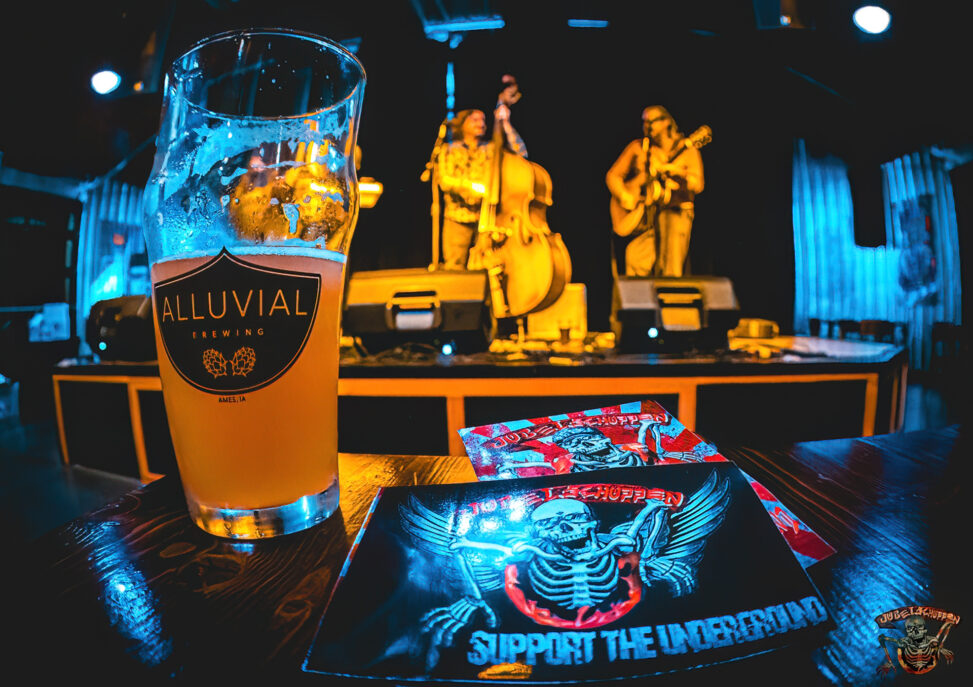In the hazy embrace of a neon-soaked night at the Alluvial Brewing Company, I found myself thrust into the heart of an auditory tempest, courtesy of The Haymakers — a wild crew of sonic alchemists armed with strings and a penchant for musical anarchy. Dustin Arbuckle, Tom Page, Anthony Trupia, and Caleb Drummond—conjurers of chaos in the realm of bluegrass and beyond.
The air crackled with anticipation as the quartet took the stage, an oddball ensemble seemingly plucked from the fringes of a counterculture carnival. Arbuckle, the vocal vanguard, possessed a voice that cut through the smoky atmosphere like a banshee’s wail. His harmonica, a dervish of notes, danced with the devil, unleashing a tempest of sound that would make the most seasoned bluesmen cower.
Page, the guitar maestro, strummed and plucked with a feverish intensity that bordered on the supernatural. His fingers moved like a spider weaving an intricate web of sonic sorcery, blending bluegrass with the frenetic energy of a punk rock rebellion. Trupia’s mandolin added an ethereal layer, a cosmic twang that resonated with the spirits of Appalachia and echoed through the dusty canyons of western swing.
Caleb Drummond, the double bass virtuoso, anchored the madness with a steady pulse that reverberated through the floorboards, shaking the very foundations of reality. His vocals, a primal chant, added a layer of mysticism to the sonic brew, transforming the performance into a ritualistic dance with the unknown.
The Haymakers, true to their name, didn’t confine themselves to the traditional bluegrass boundaries. No, they were sonic outlaws, plundering the vast landscape of acoustic music with a voracious appetite. The strings became conduits of rebellion, weaving a tapestry that stretched from the hollers of Appalachia to the desolate plains of Americana.
As the night progressed, the boundaries between genres blurred into a kaleidoscopic journey through time and space. The Haymakers weren’t just a band; they were a musical odyssey, traversing the landscapes of tradition and innovation with a reckless abandon that mirrored the spirit of the Gonzo journalist himself.
The audience, a motley crew of misfits and music seekers, surrendered to the sonic pilgrimage. Bluegrass purists rubbed shoulders with free-spirited jam band enthusiasts, creating a mosaic of revelry and mayhem. The Alluvial Brewing Co. became a temporary refuge for the disenchanted, a sanctuary where the conventional rules of musical engagement were shattered.
And so, as the final chords reverberated through the air, leaving a lingering echo of chaos in their wake, I stumbled out of the Alluvial Brewing Co. dazed and exhilarated. The Haymakers had not just played a concert; they had orchestrated a sonic revolution, a rebellious manifesto against the confines of musical orthodoxy. In a world yearning for authenticity, The Haymakers stood as torchbearers of sonic liberation, and the Alluvial Brewing Co. became their hallowed ground 





















































